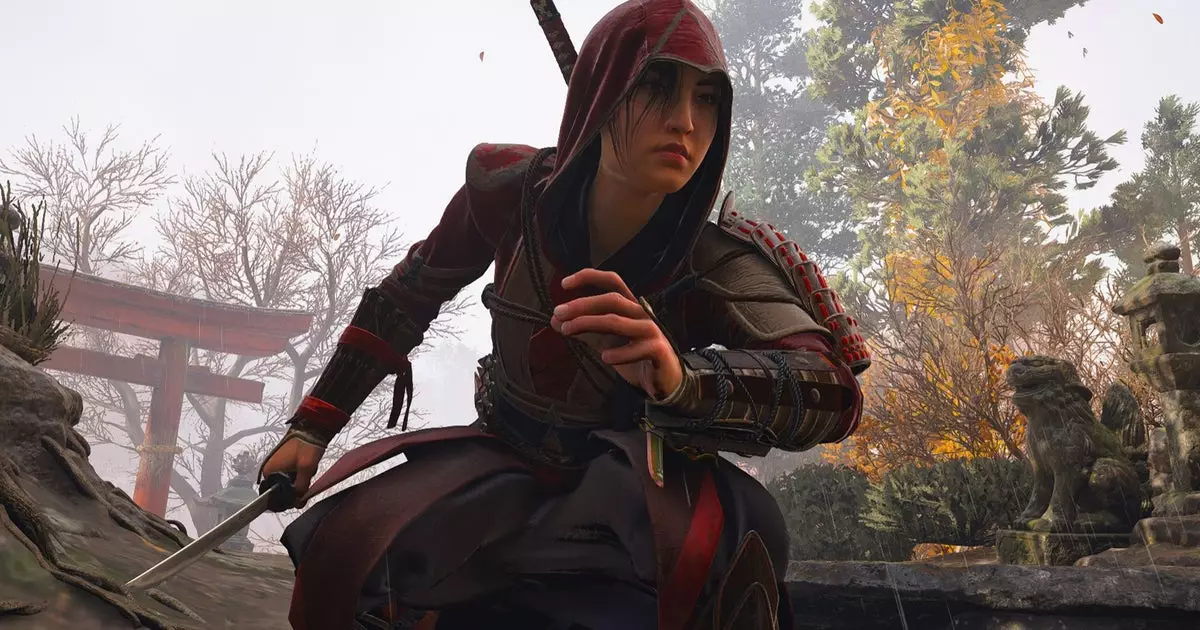The landscape of the gaming industry is an unforgiving one, where giants like Ubisoft find themselves navigating treacherous waters. Recent statements from CEO Yves Guillemot reveal that the company is postponing the release of multiple high-profile projects. This decision comes on the heels of the release of “Assassin’s Creed: Shadows,” which Guillemot claims has highlighted the enduring strength of the Assassin’s Creed franchise. However, the choice to delay other games exposes how intense market competition and the shifting dynamics of player expectations are impacting even the most established players in the field.
Ubisoft’s troubles are not merely anecdotal; Guillemot candidly acknowledged that the company has had a challenging year, documenting mixed results across its portfolio. Such honesty is commendable, yet it speaks volumes about the volatility faced by developers in an ecologically rich market filled with creative ingenuity. Many players yearn not just for new titles, but for quality experiences that resonate with the core of what makes gaming meaningful. Ubisoft is at a crossroads, tasked with harmonizing player expectations and market realities while improving organizational efficiency.
Cost-Cutting Measures: A Tough Yet Necessary Path
In a bid to regain stability, Ubisoft has laid down the gauntlet by initiating a cost-cutting strategy aimed at reducing expenditures by at least €100 million. This action, which has already led to the reduction of approximately 3,000 positions since September 2022, has sparked plenty of discussions around corporate responsibility and the human cost of bottom-line thinking. While efforts to streamline operations make fiscal sense and are common in competitive industries, the question of how these decisions affect company culture and employee morale lingers ominously.
Guillemot’s reference to “discipline” encompasses not only cost savings but also a strategic shift in project timelines and expectations. The decision to push back releases such as the highly anticipated sequel titles is not simply about creating space for development but rather about ensuring that each game receives the polish necessary to thrive in a saturated market. After all, the gaming community does not forgive easily, and debuts that stumble in execution can easily tarnish franchise reputations.
Embracing Partnerships: A Future with Tencent
In a move that underscores the importance of collaboration within the evolving gaming framework, Ubisoft is forging a partnership with Tencent through a newly formed subsidiary. This relationship aims to enhance the development of its most cherished brands—like Assassin’s Creed, Far Cry, and Rainbow Six. While partnerships can offer a lifeline, especially when resources are thin, they can also create an environment ripe for scrutiny, and a balance must be maintained to preserve brand identity.
Strategically positioning itself within a framework of external support can yield significant dividends, provided Ubisoft effectively communicates to players that their beloved franchises will not be diluted by external pressures. The success of this initiative will hinge on the company’s ability to remain true to its roots while innovating around its familiar offerings.
The Future: Quality Over Quantity
The next few years depict a lean release schedule for Ubisoft, illuminated by a commitment to quality over quantity. Notably, Guillemot shared plans to allocate extra development time for their major productions in the coming financial years. This approach signifies a philosophical shift that prioritizes creating the best conditions for success and recognizing that today’s gamers are not only looking for entertainment but also for narratives that resonate and innovative gameplay that captivates.
While the near future may seem sparse, promise lies in the long-term vision that aims to recover Ubisoft’s place amongst premier developers. The dual approach of enriching narrative experiences alongside live service innovations showcases a forward-thinking ethos aimed at satisfying diverse player needs. The challenge lies in executing this delicate balancing act without compromising the strong legacy of the brands involved.
Ultimately, Ubisoft stands at a crucial moment, where every decision can either herald a renaissance for its iconic franchises or further entrench the company within a state of uncertainty. The choices made today will shape the pathway ahead, prompting not only external scrutiny but also internal reflection on the values that underpin the core of Ubisoft’s storied legacy.

